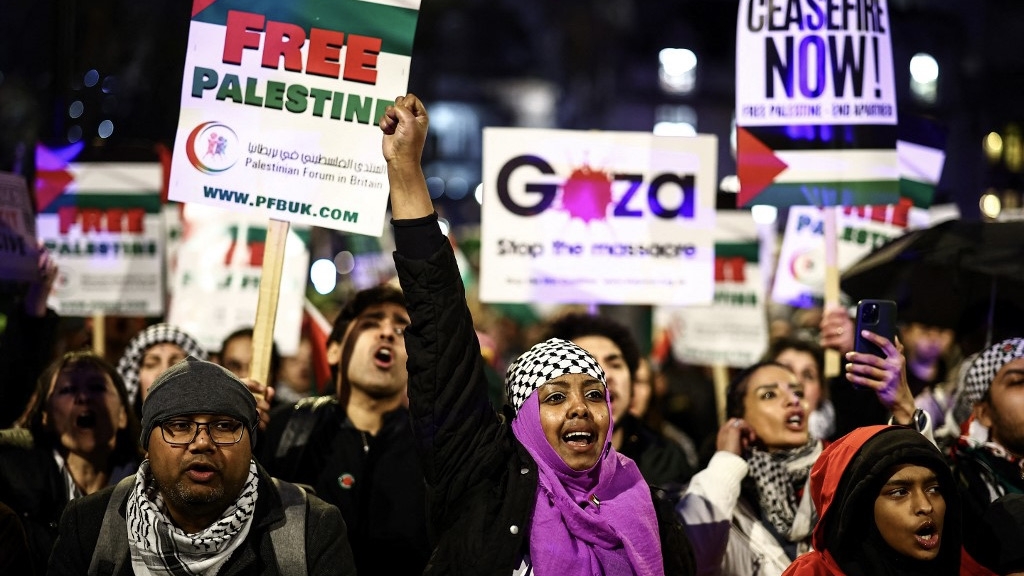Islam and a century of western distortion

When western politicians pontificate on Islam, as they often do, Muslims can be forgiven for not recognising themselves.
Framing Islam, as Edward Said famously showed, is an old game. But the extent to which the radicalism that is meant to define Islam is in fact a product of western manipulation has still to be fully understood and appreciated.
Throughout the 19th century, when western states found they had acquired an unprecedented ability to order the world, imperial scholars began to frame Islam as an outmoded, irrational and violent religion - the more so because it had the power to inspire resistance to foreign subjugation.
So pervasive had this discourse become that the German kaiser had the Ottoman grand mufti issue a fatwa declaring jihad in 1914 against the allied powers in the vain hope it would rouse the colonised masses against their British and French masters.
The Ottoman and German governments cooperated in a covert programme of wartime propaganda in which Arab and Turkish religious scholars and intellectuals travelled to Germany, writing pamphlets and trying to turn Muslim prisoners of war against the empires.
Stay informed with MEE's newsletters
Sign up to get the latest alerts, insights and analysis, starting with Turkey Unpacked
The great Muslim uprising was a figment of Orientalist fantasy. But when the Russian revolution erupted in 1917, the idea first flickered in the British imperial mind that perhaps Islam, however defined, could be useful as a bulwark against the Soviet left.
Weaponisation of Islam
As Priya Satia has shown, historians such as Arnold Toynbee working with British intelligence developed a sudden interest in the political direction of post-war Turkey, fearing the draw of Soviet Russia before Ataturk took the country down the path of radical secularism and Turkey joined Nato.
This was an important dress rehearsal for the Cold War, when the weaponisation of Islam against the left reached new heights.
In the early 1950s, US administrations began to reach out to the emerging Islamist movements, inviting a delegation of Muslim scholars and diplomats, most of them Arab, to a conference in 1954 on Islamic culture that ended in a White House meeting with President Eisenhower.
Stirring "holy war" was on Eisenhower's mind when he issued his famous doctrine in 1957 that promised help to any Middle Eastern country under threat from the "atheistic materialism", as he called it, of the Soviets. Saudi Arabia became the bridgehead of this drive to manipulate a world religion, developing its Islamic foreign policy in close coordination with the United States.
New bodies like the Muslim League were established burnishing CIA-authored anti-communist tracts, religious scholars championing the new-fangled ideology of "Salafism" such as Nasir al-Din al-Albani were invited to teaching posts at the Islamic University of Medina, and funding flowed to crush Arab nationalist and leftist anti-colonial movements across the region.
So, when British Prime Minister Margaret Thatcher infamously told Afghan mujahideen in 1981 that "the hearts of the free world are with you", she was building on decades of use and abuse of Islam for western political ends.
The story from there onwards is extremely well-known. On 11 September 2001, the United States came to pay a dreadful price for meddling in the religious politics of others. Yet, now over two decades after 9/11, it's as if nothing has changed.
Since 7 October, public space in the West has been flooded with Islamophobic discourse on an almost unprecedented scale.
A British TV presenter shouts down Palestinian politician Mustafa Barghouti with accusations from nowhere of misogyny, while known anti-Muslim figures like Douglas Murray proclaim Israel as the frontline against a barbarian threat to western civilisation.
Extraordinary spectacle
The only explanation allowed for why Palestinians would challenge occupation and oppression is religious fanaticism. Governments are going to inordinate lengths to malign Muslims for the sake of justifying their chosen policy of backing mass murder in Gaza.
On 1 March, we had the extraordinary spectacle of a British prime minister taking to the podium in Downing Street to denounce an opposition candidate's by-election victory because he had appealed to Muslim anger over government policy on Gaza.
According to Rishi Sunak, George Galloway had appealed to the "extremist political ideology of Islamism". But in seeking to define this Islamism, he could only come up with the tautology that it spreads "extremism", while Islam as a faith, he said, is "peacefully practised" by millions.
The implication wasn't just that Muslims shouldn't protest, but that any sign of Muslimness is ipso facto verboten, backwards and anti-modern.
Sunak even linked this Islamism to long-standing critique of colonialism, claiming Islamists "want us to accept a moral equivalence between Britain and some of the most despicable regimes in the world".
It will be news to many historians that they belong to political Islam.
Following this, the government unveiled new definitions of extremism which include Islamism as a "totalitarian ideology" that calls for an "Islamic state governed by sharia law". This is what Muslims and others who rally opinion over Gaza stand accused of.
Chinese political culture talks of China's "century of humiliation"- 100 years of western interference and subjugation from the Opium Wars to independence after the Second World War.
What Muslims have suffered by contrast is 100 years of distortion, not just by imperial scholarship but by governments and their intelligence agencies - of their faith, their practices and now their lives and their right to express opposition to outrageous, inhumane foreign policy.
The views expressed in this article belong to the author and do not necessarily reflect the editorial policy of Middle East Eye.
Middle East Eye delivers independent and unrivalled coverage and analysis of the Middle East, North Africa and beyond. To learn more about republishing this content and the associated fees, please fill out this form. More about MEE can be found here.






